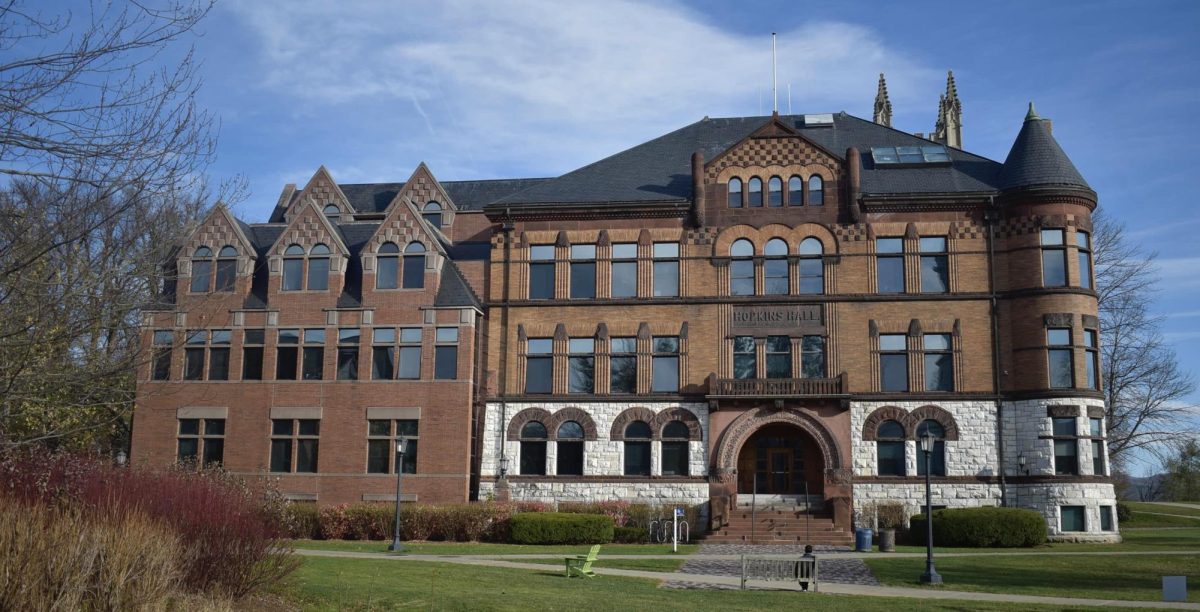Chaplains’ Corner: Building connection to respond to the damage we cause
November 9, 2022
Oscar Nobel’s Oct. 26 op-ed on antisemitism on college campuses was not surprising for many of its readers. National organizations and federal agencies have been documenting and publicizing incidents of anti-Jewish bias for some time. As I read his piece, however, I was struck by two things. The first was that Oscar, as well as other Jewish-identifying students on campus, have experienced disturbing acts of antisemitism here at the College. In speaking to Jewish students in the aftermath of his piece, I have heard an alarming number of stories of microaggressions, as well as outright incidents of bias.
The other thing that I find myself struggling with is why acts of bias against minority groups keep happening.
We know all too well that bias against minority groups is persistent, vicious, and destructive. President Maud S. Mandel’s recent emails about incidents of anti-Black racism on campus are a pressing reminder of that. We also know that even as we, as a campus community, seek to interrupt and stymie instances of bias, they continue to take place.
As we seek to uncover the sociological, psychological, and material conditions that lead to acts of bias, we also need to struggle with fundamental questions about human nature and behavior. What is it about us human beings that make these incidents so common? How do we make sense of the incredible good that we are capable of, alongside the fact that we are just as capable of causing deep pain to those around us? These questions lie at the heart of our deepest existential reflections, and these are also questions that religious traditions take seriously. In the Jewish tradition, these questions are raised in some unlikely places. One of those places is discussions about property damage, and I think reflecting on some of the examples they raise can offer a lens through which we can approach these questions.
In the Mishnah, one of the earliest collections of rabbinic law, the ancient rabbis list different kinds of animals and their behaviors and whether or not we need to keep an eye on them in case they destroy someone else’s property (Tractate Bava Kamma, chapters 1 and 2). Some animals are only on watch for certain behaviors — chickens for stomping on things, dogs for eating things — while others, such as wolves, lions, bears, leopards, polecats, and snakes, are considered more likely to cause damage in more situations, so we always need to be careful around them. After enumerating all the animals whom we assume are most likely to cause damage, the rabbis then add one more animal: human beings. Whether the damage a human being causes is deliberate or unintentional, we must always be on guard and assume that people are likely to cause damage and are therefore liable for it (ibid. 2:6).
This is a powerful condemnation. When I first came across it, I was surprised. In Jewish settings, I typically hear that people are considered to be inherently good. We even say in the daily liturgy, “God, the soul you have given me is pure.” However, just because we have good souls doesn’t mean we aren’t capable of causing profound damage. This rabbinic teaching also seems to suggest that restorative practices are necessary whenever an individual causes harm. We may be imperfect, but we are still responsible for righting whatever damage we cause.
Shortly after this discussion of human liability, rabbis of the Talmud, living about 300 years after the Mishnah, debate a situation in which two people who are running and collide into each other right before sunset on Friday afternoon, soon before the start of Shabbat, the day of rest (Babylonian Talmud, Bava Kamma 32a-b). We might expect the rabbis to rule that running into someone requires a person to pay for any damages that have been caused. However, they conclude that since the individuals are running before the onset of Shabbat, it is because they are doing something important that can only be done before Shabbat. Since that was done in honor of Shabbat, those involved do not have to make any payments for items that are damaged.
It is a surprising ruling, yet it highlights the role that Shabbat plays as a tool of healing and reconciliation. In his commentary on this section of the Talmud, HaDaf HaKiyumi: Tovanot Le’Chayim Be’sugyot HaTalmud, contemporary Rabbi Dov Berkovits suggests that for the ancient rabbis, beginning Shabbat represents leaving the domain of everyday life and productivity to enter a zone of quiet and peace. Shabbat is a time when we step away from work and take time to reconnect with people in our lives. That, Berkovits argues, is how the rabbis resolve the problem of human capacity for damage: We balance our tendency for destruction by stepping back from the world and reconnecting with others. If we run into someone on our way to that domain of rest, perhaps our recompense is not to pay them for their damaged goods. Perhaps our task is to help them back up, assist them in picking up their belongings, and hold their hand as we both move toward Shabbat and the wholeness that we all seek.
As we continue to face incidents of bias in our campus community and our country, I think this passage offers some surprising advice. Just as we must engage in restorative practices that seek to restore balance when harm has taken place, we must also join together to step outside of our adversarial and fast-paced environment and seek connection. We need to pause and seek renewal with each other, to cultivate relationships that can help us to combat bias. It is precisely through fostering connections across differences — and in partnership with members of communities beyond those of our own identity — that we can find the rest and inner strength to support each other.
Rabbi Seth Wax is the College’s Jewish Chaplain.







